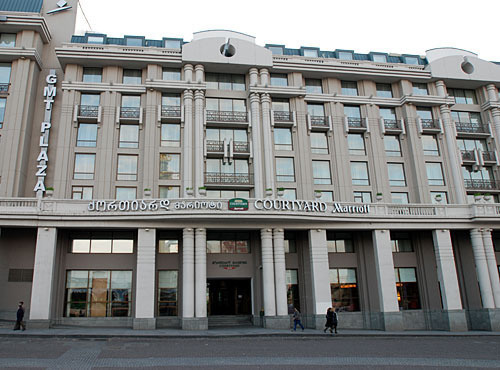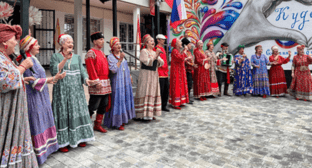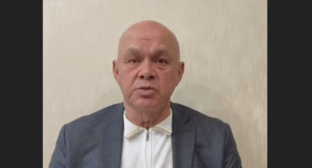
23 March 2010, 21:30
Journalists were not admitted to conference in Tbilisi on Adygs' genocide in Russian Empire
For two days, on March 20-21, the Tbilisi-based hotel "Korti Yard Marriott" hosted a closed discussion of historical works presented by Caucasian scientists from Europe, Caucasus and Georgia. In the course of the scientific-practical conference "Concealed Nations, Crimes-in-Progress: Circassians and Peoples of Northern Caucasus between Past and Future", its delegates passed an appeal to the parliament of Georgia asking to recognize the genocide of the Adyg nation. In the course of the conference a resolution was also adopted concerning recognition of the actions of the Russian army in the 18th-19th centuries in the territory of today's Chechnya and Ingushetia to be a fact of genocide.
As reported by the "Caucasian Knot" correspondent, the scientific materials announced at the conference were not made public, as the organizers did not let a journalist in, except for Oleg Panfilov, who has refused to tell his colleagues about what had happened behind the closed doors, and journalist Fatima Tlisova.
Press conferences were held for media people, where the organizers read out the statements passed during the working days. The first of them concerned recognitions of Adygs' genocide.
"If we proceed from the fact that 10 percent of the whole population remained in the lands of Circassia or Adygea, then, probably, it should be referred to the category, where the name is genocide," said Mairbek Vagachaev, Professor of history from Sorbonne.
According to his story, today Europe sees growing interest to the Caucasus; and he believes that genocide should be recognized not only for the sake of the Caucasian nations, but also for the sake of Russia. "In France, every new president apologizes before Algerians for what Frenchmen had done in Algeria; in Germany every new chancellor apologizes before Israelis. This is normal practice in the world, except for Russia. If Russia can adopt this experience, it will only win. I hope that Moscow will find a couple of sober heads and do it," said the professor.
Journalist Fatima Tlisova, a participant of the conference, noted that the Tbilisi initiative is of great importance for Circassians, since never before they got a chance to talk about their tragedy at such level.
"When 99 percent of Circassians had been killed or evicted, and when only three percent of them live in their historical territory, we hope very much that these actions will be regarded as genocide. We hope very much that the Georgian parliament will adopt our appeal," said the journalist.
"We don't regard ourselves to be a part of Russia; sooner or later Circassia will return its status of an independent state. In this case, the recognition of genocide will be one of the arguments for Circassians to state their own statehood," said Ms Tlisova.
At the same time, in her opinion, neither recognition, nor condemnation of genocide, nor anything else can affect the today's Russia, its "totalitarian regime" to improve the situation with human rights.
One of the statements, brought by the conference to the parliament of Georgia, runs that the Circassian nation is one of the indigenous Caucasian nations, and because of Russian Empire's actions in the 18th and 19th centuries Circassians had lost more than 1.5 million human lives.
Besides, the statement offers to announce May 21, when Russia celebrates the end of the 1864 Caucasian War, to be the Memory Day of the victims of Circassian genocide and to recognize Sochi to be the place and symbol of genocide and ethnic cleansings.
The second, Chechen-Ingush document, adopted by the conference, calls the parliament of Georgia to recognize the actions of Russian troops in the territory of today's Chechnya and Ingushetia in the 18th-19th centuries to be a fact of genocide, and to support the recommendations of the European Parliament of February 26, 2004, addressed to the Council of Europe and concerning the EU-Russia relations, where Point 15 recognizes the deportation of the Chechen people to be an act of genocide.
Besides, the authors of the document - members of Chechen and Ingush delegations from Germany, Norway, France, Russia, Turkey, Jordan, Belgium, Austria and Georgia - call to support the initiative of the leading Russian human rights organizations about setting up the International Tribunal on the crimes committed in Chechnya against humanity by Russian troops in the course of two Chechen Wars in the end of the 20th - early in the 21st centuries.
Author: Beslan Kmuzov Source: CK correspondent




